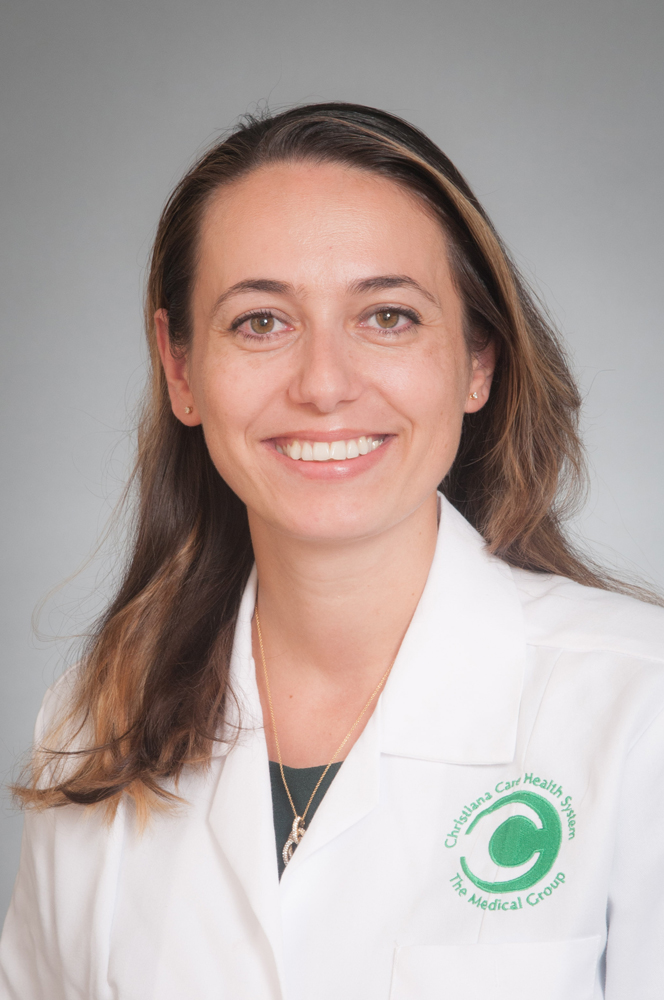By Mike McGann, Editor, The Times @mikemcgannpa

Glea Mazzuca, DO
If you’ve heard the term “tripledemic” of late and are unsure of how it could impact you and your family this holiday season, local healthcare providers are sharing information about what to look for, the differences between the three viruses involved and some simple things you and your family can do to stay healthy.
Cases of flu, COVID-19 and RSV (respiratory syncytial virus) are increasing in Chester County in December as people return to social settings many avoided over the last two years during the COVID pandemic. While vaccines are available for both flu and COVID-19, there is not currently a vaccine for RSV.
But that coupled with an early and aggressive flu season, a spike in RSV cases — especially among young kids — and growing COVID rates have area hospitals again filling with patients fighting respiratory viruses. That also means viruses are spreading throughout the county.
Glea Mazzuca, DO, is a primary care provider with ChristianaCare Primary Care and Women’s Health at Kennett Square. She shared some tips of what to look for in terms of the three viruses.
“We are facing facing a ‘tripledemic’ “ Mazzuca said. “It’s been in the news and it has been pretty prevalent in our region.”
One of the complicating issues is that the three respiratory viruses have many symptoms in common, which Mazzuca said can make it difficult to distinguish between the three without testing.
“That’s why it is important to seek help if there is difficulty breathing and high fevers that are not improving,” she said.
Typically, she said, patients presenting with these symptoms are tested for all three viruses, as the treatment for each is somewhat different — Tamiflu for flu, Paxlovid for Covid, as examples. At this point, there is no dedicated treatment for RSV.
While RSV typically isn’t dangerous for older kids and adults, it can be more of a hazard for the very young and the very old — especially those in either category with other respiratory health challenges. In most cases, though, Mazzuca said it can be managed at home.
“The treatment (for RSV) is mostly supportive, to make sure the lungs are getting enough oxygen,” Mazzuca said. She notes that most kids diagnosed with RSV do well at home with basic, over the counter medicines, such a Tylenol and moist air — from humidifiers or hot steamy showers.
“But there are some children who are at higher risk for having severe illness,” she said. “Such as children who have underlying asthma or underlying lung disease, and they may require hospitalization and oxygen supplementation.”
Mazzuca said most kids do well with home treatment when it comes to RSV, but the spike in cases has left parents of young children concerned.
“The more severe illness will be in young infants as well as the elderly,” she said, but it can be spread by anyone, potentially putting they very young and very old at risk.
Of course, the best option for battling any virus is prevention. Mazzuca points out that there are safe and effective vaccines for both flu and COVID-19 — available to virtually anyone over the age of six months. Both are effective at minimizing the severity of the virus and avoiding hospitalization.
Some of the other options to prevent spread of viruses Mazzuca suggests are common sense stuff, such as regular hand washing, avoiding crowded indoor gatherings when possible and staying home when you are ill.
And yes, masking under selective situations, she said, makes sense.
“I’m also a good advocate of masks,” she said. “They protect you, they protect others, especially if you are going to be in a crowded location.”
Just this week, the Centers for Disease Control (CDC) recommended people wear masks in public, especially for those areas with “high” transmission of respiratory viruses. As of this week, the CDC lists Chester County as a “medium” transmission area, although cases continue to climb.






